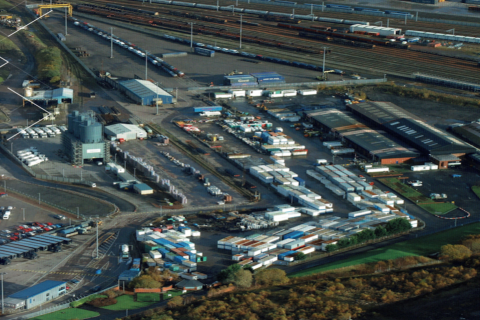‘Go intermodal to grow rail’s market share,’ say the shippers

The perspective of shippers using rail freight transport is the most valuable feedback on making the industry more attractive and efficient. However, how frequently are their needs met, and how could rail freight services improve?
“Price is always important, but for us comes second compared to efficiency, punctuality and resilience of rail operations,” explained Nico van den Berg, distribution process lead at the home appliances company Electrolux. Most importantly, he discussed how rail will probably lose customers if it doesn’t become more intermodal.
Van den Berg shared these strong views during the rail freight event, which took place upon the arrival of the Connecting Europe Express train in Luxemburg.
Peace of mind critical
If price is not that important and shippers are willing to pay for even slightly more expensive services, what do they want in return? According to van den Berg, they need the rail freight sector to comprehend their needs and not act independently. As he explained, three pillars need to be met at all costs. First of all, rail freight should become more resilient and responsive when disturbances occur. “We understand that disruptions are not calculated, but there should always be a Plan B to keep serving the customers. Otherwise, the customers will turn to road transport,” highlighted van den Berg.
Moreover, rail operations must be meet the shipper’s throughput forecast. “We cannot forecast our shipping times and then meet with extensive delays,” stretched van den Berg. “It is not only that the products delay reaching the distribution centres after leaving the factories. They also take more time reaching the consumers, our customers, and we want our customers to have peace of mind and not worry about their order”.
Do you want more customers? Go intermodal
The rail freight industry cannot just expect customers to turn to rail without incentives. “All of our factories have rail connections,” said van den Berg. However, using last-mile road services is unavoidable. “Even for us, just using rail freight is not possible. We cannot use rail without intermodal or combined transport, name it as you want. That is because the market is flexible, and companies change locations constantly,” he emphasised.
He concluded by underlying that intermodal transport is the future both in terms of sustainable transport but also the viability of the rail freight industry. Going intermodal means more companies will be attracted to rail transport, which is already essential for their decarbonisation goals. On top of that, rail freight will become more commercial and customer friendly. If shippers who are rail’s customers identify that intermodal is the future, this is serious food for thought. Is it time for a collective mind shift? Most probably yes.
You just read one of our premium articles free of charge
Want full access? Take advantage of our exclusive offer





